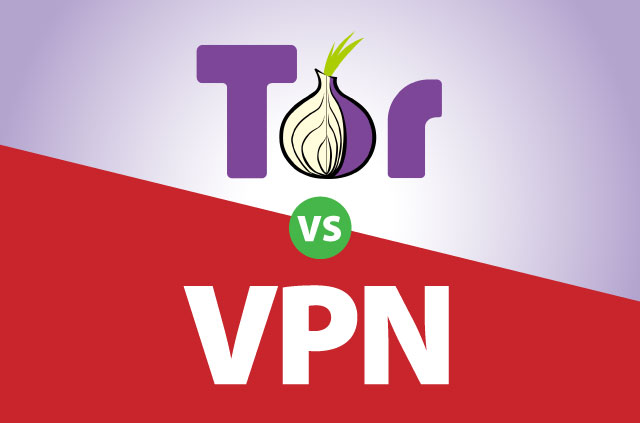Contents
Anonymity has become the need of the hour. Earlier used to be the source of information, the modern day internet has become the hub for a lot of criminal activities like hacking, phishing, and many other crimes. All of us wish to browse the internet anonymously. From our ISP to the cyber security department of our country, everyone knows what we are browsing on our internet connection. There is a strong need of finding some good means that can help us navigate through the web with complete anonymity. Tor and VPN can help us browse across the deep web links with complete anonymity. Which one to use? Let’s go through the Tor vs VPN articles and figure out the differences between the two.
Tor vs VPN
Tor was believed to be one of the most secured networks in late 80s and 90s before the arrival of VPN in the internet world. Earlier, US Military used to send secret conversations from one base to another using the TOR network, which was developed by them. Soon, it started to be used in top universities of the country and then spread to different parts of the world. Since the arrival of best VPN, Tor has become less popular, but is still being used because it is available for free. Let us find out the differences between the two in the Tor vs VPN article alongside.
Tor vs VPN: Working
Tor is basically a decentralized system allowing the users to connect to the desired servers or dark web sites by getting connected through the network of the relays rather than getting connected directly. The user’s traffic is routed thoroughly through different nodes or random servers. Each of the nodes involved is aware of the IP addresses that are in front or behind it. In this way, no one can track the complete path between the user’s PC to the destination.
A VPN is generally created by establishing point to point connection virtually. A virtual connection is established to a gateway with the use of dedicated connections, traffic encryption, or virtual tunneling protocols. The user appears to be coming from one of the IP addresses to the network other than that of gateways. The actual IP address of the user is replaced by the server’s IP once the user connects to the server. In this way, the user can browse through the internet without revealing his actual identity to the world.
Tor vs VPN: Encryption Standards
The encryption in TOR is routed through different nodes and relays before it is decrypted and sent to the destination website. The first server to which you are connected knows your location, the second one knows that the data is coming from first server, the third one know that data came from second server, and so on. The last server will not be able to track the origin of data. This is how data is encrypted in Tor.
The encryption used by VPN is more powerful if compared to the Tor. It uses military grade encryption by selecting the right protocol (OpenVPN) and using AES 256 encryption and keying with 8196-bit strength. This is how powerful the encryption used in the VPN is.
Tor vs VPN: Geo Restrictions
With Tor, a user will be able to access the desired websites only if the appointed exit node is in the preferred country. You might not be able to access all the websites using Tor, though it can be achieved for countries like USA, UK, and some renowned nations. But, in small countries, the geo restrictions cannot be bypassed by Tor.
It is a child’s play for VPN to bypass the geo-restrictions. You just need to connect to the server of desired country. Once you are connected to the preferred location, you will be treated as the citizen of the country as you will be able to use the IP address of desired country. You can access any website in the world by changing your server instantly.
Tor vs VPN: Speed
As your data is routed through different nodes and relays, the latency is added by each node/relay making the speed of Tor much slower. Tor is not suitable for P2P file sharing and streaming.
Many of the users believe in the myth that VPN kills the internet speed. But, the modern day modifications and advancements have improved the speed of the VPN significantly. The VPN connection has negligible impact on the internet speed.
Tor vs VPN: Cost
As talked earlier, Tor is completely available for free. You can visit its official website and download the software for free. It is available for different platforms and can be used by any user to browse through the www without any worries.
When we talk about the VPN network, there come the limitations as well. It is available for free and you can enjoy more features by going for the paid versions. With free VPN, you get limited bandwidth, limited protocols, limited device use, and limited locations. Going for the paid VPN is a better choice. The price is much lower than your expectation. A good VPN can cost you around $2-$5 per month usually depending on the features offered.
The Last Words
Overall, Tor and VPN both have their limitations and advantages, but VPN surely wins the race over Tor when we talk about the speed, encryption, and usability. You must consider the above points mentioned in Tor vs VPN article before choosing any of them.

